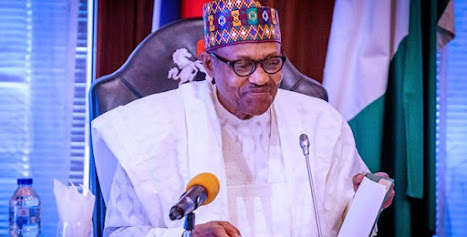By Femi Fani-Kayode
Professor
John Paden, President Muhammadu Buhari’s official biographer, is a man that is
very comfortable with distorting the truth and telling lies. He is also a man
that has been doing so for virtually all his adult life.
Anyone
that doubts that should read his biography on the late Sir Ahmadu Bello, which
was written in 1986 and titled Ahmadu
Bello, Saurdana of Sokoto: Values and Leadership In Nigeria, and which is essentially a
self-serving and comprehensive compilation of Bello’s
numerous virtues with little or no mention of his many vices. I
read that book twenty years ago and I placed it in the “light entertainment” shelf in my library because it lacked
gravitas or any real intellectual stamina.
 |
Aisha Buhari, President Buhari, Gen Gowon,
Gen Obasanjo at the October 3, 2016 book launch
in Abuja |
It
was, at best, a beautiful public relations job for Bello and, at worse, a compilation of
disjointed verbiage fit only for the dustbin. Paden’s book on Buhari falls into
the same category. It is nothing but an illusion: an extraordinary and
fantastic fairy-tale built on a shady foundation of pseudo-intellectual
clap-trap and garbage.
To
him, President Buhari is infallible. He is, at best, an angel of light and, at
worst, a perfect mortal with no warts. Paden’s latest contribution is the
greatest exercise in dishonesty and historical revisionism that has ever been
undertaken by any foreign or Nigerian historian since independence. The only
one that comes close to it in this respect is the book that he wrote on the
Sardauna and a number of other books that he authored over the years which were
primarily about core northern Nigeria.
Writing
rubbish seems to be Paden’s stock in trade. In his latest book, amongst many
other glaring and shameless mendacities, he indulged in two particular lies
that are an eloquent testimony to his perfidy. The first was that three names
were sent to President Muhammadu Buhari for the position of Vice President,
namely Asiwaju Bola Ahmed Tinubu, Yemi Osibanjo and Babatunde Raji Fashola in
2014 for the 2015 presidential election. This is false and it is simply an
attempt to demean and belittle Tinubu and the role that he played in the whole
exercise.
The
truth is that it was Tinubu and Tinubu alone that forwarded the only name that
was given serious consideration for the Vice Presidential slot by President
Buhari. That name was Professor Yemi Osibanjo. Senator Olorunimbe Mamora was
also considered by Buhari but he did not have the backing of Tinubu and neither
did Tinubu forward his name. The idea that Tinubu’s name was forwarded to be
Vice President alongside that of his two protégées in the persons of Osinbajo
and Fashola is nothing but fantasy and it was a beautiful and tasteful dish and
tale that was spiced cooked up and prepared in the kitchens of Aso Rock.




















